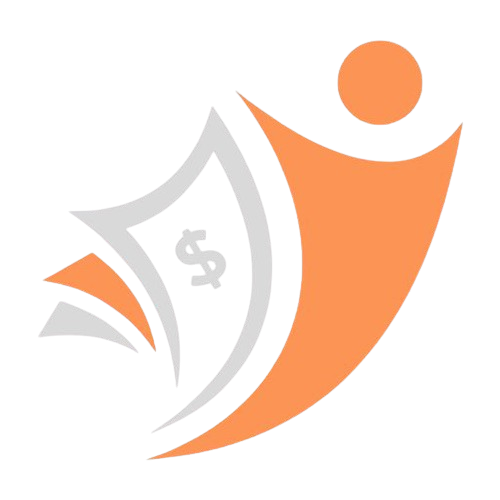In today’s world, people use different types of cards to pay for things – whether it’s shopping, paying bills, or booking a trip online. The most common cards are prepaid cards, debit cards, and credit cards. While they might seem similar because they all help you pay for things without using cash, each of these cards works differently.
Understanding what’s the difference between a prepaid card and a debit or credit card is important to know which card is best for your needs. In this blog, we will explain the differences between prepaid cards, debit cards, and credit cards in simple terms, so everyone can easily understand.
What is a Prepaid Card?
A prepaid card is a card that you load with money before you can use it. It’s like a gift card, but you can keep adding money to it whenever you need more. Once you have money on your prepaid card, you can use it to pay for things like groceries, gas, or online shopping. Prepaid cards are not linked to a bank account, and they don’t require a credit check, which makes them available to almost anyone.
How Prepaid Cards Work:
- Loading Money: You must put money on the card first, either through cash, a bank transfer, or direct deposit from your paycheck.
- Spending: You can only spend the money that’s already on the card. Once the money runs out, the card won’t work until you reload it with more funds.
- No Overdraft: There’s no risk of spending more than what’s on the card. If you try to buy something that costs more than the balance on the card, the transaction will be declined.
Benefits of Prepaid Cards:
- Control Over Spending: Since you can only use the money you’ve already loaded onto the card, it helps you control how much you spend.
- No Credit Check: People with no credit history or poor credit can still use a prepaid card.
- Safe for Online Shopping: Prepaid cards are often used for online shopping because they don’t directly connect to a bank account, making them a safer option.
Downsides of Prepaid Cards:
- Fees: Some prepaid cards come with fees, like activation fees, monthly fees, or fees for loading money onto the card.
- Limited Protection: Prepaid cards don’t offer the same fraud protections as credit or debit cards if they are lost or stolen.
Also read: Which Sector Of The Economy Is The Most Prominent Or Common In Your Community
What is a Debit Card?
A debit card is directly linked to your bank account. When you use a debit card to make a purchase, the money is taken directly from your checking or savings account. Unlike a prepaid card, you don’t need to load money onto a debit card – it simply uses the funds in your account.
How Debit Cards Work:
- Linked to a Bank Account: The money for your purchases comes straight from your bank account.
- Spending Limit: You can only spend as much as you have in your account. If you try to spend more than you have, the transaction will be declined unless you have overdraft protection.
- Immediate Transactions: When you use a debit card, the money is taken from your account immediately or within a day or two, depending on the bank.
Benefits of Debit Cards:
- Convenience: You can use a debit card for in-store and online purchases, and even to withdraw money from ATMs.
- No Interest Charges: Since you’re using your own money, there are no interest charges like there are with credit cards.
- Easy to Get: Most people with a bank account can easily get a debit card.
Downsides of Debit Cards:
- Risk of Overdraft: If you spend more money than you have in your account, you could face overdraft fees unless you’ve opted out of this service.
- Less Protection: Debit cards generally offer less protection than credit cards if something goes wrong, like fraud or unauthorized charges.
What is a Credit Card?
A credit card lets you borrow money from the bank to make purchases. Unlike a debit or prepaid card, a credit card allows you to pay for things now and pay the bank back later, usually at the end of the month. If you don’t pay off the full balance, the bank charges you interest on the amount you owe. A credit card is based on your creditworthiness, meaning the bank checks your credit score before giving you a card.
How Credit Cards Work:
- Borrowing Money: When you use a credit card, you’re borrowing money from the bank that you’ll need to pay back later.
- Credit Limit: The bank gives you a credit limit, which is the maximum amount you can borrow. This limit is based on your credit score and income.
- Interest: If you don’t pay your balance in full by the due date, the bank charges interest on the remaining balance.
Benefits of Credit Cards:
- Building Credit: Using a credit card responsibly can help you build or improve your credit score, which can be important for getting loans or mortgages in the future.
- Rewards: Many credit cards offer rewards like cashback, travel points, or discounts on purchases.
- Protection: Credit cards offer more protection than prepaid or debit cards, especially when it comes to fraud or disputes with merchants.
Downsides of Credit Cards:
- Interest Charges: If you don’t pay off your balance in full, you’ll be charged interest, which can add up over time.
- Risk of Debt: It’s easy to overspend with a credit card, and if you’re not careful, you can quickly find yourself in debt.
What’s The Difference Between A Prepaid Card And A Debit Or Credit Card?
- Source of Funds:
- Prepaid Card: You use money that you’ve already loaded onto the card.
- Debit Card: You use the money from your bank account.
- Credit Card: You borrow money from the bank that you’ll need to pay back.
- Spending Limits:
- Prepaid Card: You can only spend what you’ve loaded onto the card.
- Debit Card: You can only spend the money available in your bank account.
- Credit Card: You can spend up to your credit limit, which is set by the bank.
- Credit Checks:
- Prepaid Card: No credit check is required to get a prepaid card.
- Debit Card: No credit check is needed, as it’s linked to your bank account.
- Credit Card: You’ll need a credit check to get approved for a credit card, and your credit score affects your credit limit.
- Fees and Interest:
- Prepaid Card: Some prepaid cards have fees, such as activation or reloading fees.
- Debit Card: There are usually no fees unless you overdraft or use an ATM outside of your bank’s network.
- Credit Card: You may face interest charges if you don’t pay off your balance in full each month.
- Impact on Credit:
- Prepaid Card: Using a prepaid card doesn’t affect your credit score because it’s not a form of borrowing.
- Debit Card: Debit card usage doesn’t impact your credit score either.
- Credit Card: Using a credit card responsibly can help build your credit score, while missing payments or maxing out your card can harm it.
Also read: Why Are Women Employed in Low Paid Work
Conclusion
While prepaid cards, debit cards, and credit cards all let you make purchases, they each work differently and are suited for different financial needs. Prepaid cards are great for budgeting and don’t require a bank account or credit check. Debit cards are linked to your bank account and offer convenience without the risk of debt.
Credit cards, on the other hand, allow you to borrow money and build credit, but come with the risk of interest and debt if not used carefully. Understanding these differences will help you choose the right card for your situation.

